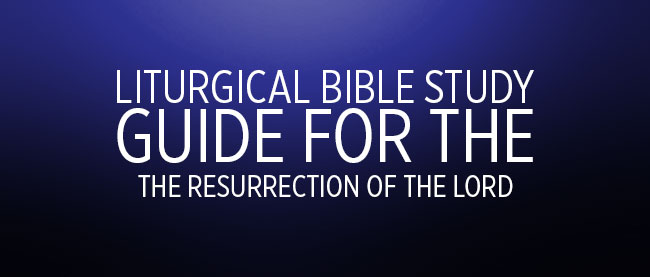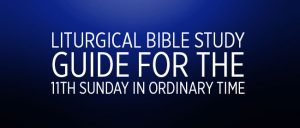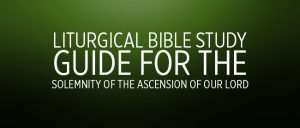1st Reading – Acts 10:34a, 37-43
Assuming that Jesus’ crucifixion occurred in A.D. 30, Paul (Saul) was converted in A.D. 33 and came to Jerusalem from his preaching in Damascus around A.D. 36. If the Acts of the Apostles is arranged in chronological order, today’s event occurs after Paul’s meeting with Peter in Jerusalem. What we hear of today is the inauguration of the mission to the Gentiles. Cornelius, a Roman centurion of the Italian Regiment, has had a vision and in this vision an angel has told him to send to Joppa (Jaffa) and summon a man named Simon who is called Peter. About noon the following day, Peter also had a vision in which he saw heaven opened and all kinds of animals which he is told to kill and eat. Peter replies “Surely not, Lord! I have never eaten anything impure or unclean” so we can assume that the animals were considered by the Jews to be ritually unclean and therefore forbidden. The voice in Peter’s vision says “Do not call anything impure that God has made clean.” This vision occurs three times and leaves Peter wondering what it means when Cornelius’ emissaries arrive. Peter accompanies the emissaries back to Cornelius and once Cornelius recounts his vision, Peter realizes the meaning of his own vision, saying “I now realize how true it is that God does not show favoritism but accepts men from every nation who fear him and do what is right.” Cornelius has been expecting Peter and has called together is relatives and close friends; there is quite a crowd gathered.
2nd Reading – Colossians 3:1-4
This reading is a practical application of the teaching given in the earlier chapters of Colossians, designed to suit the circumstances that have arisen in the Colossian church.
By His death and resurrection the Son of God frees us from the power of Satan and of death. “By baptism men are grafted into the paschal mystery of Christ; they die with Him and rise with Him” (Vatican II, Sacrosanctum Concilium, 6).
In other words, Christians have been raised to a new kind of life, a supernatural life, whereby they share, even while on earth, in the glorious life of the risen Jesus. This life is at present spiritual and hidden, but when our Lord comes again in glory, it will become manifest and glorious.
Two practical consequences flow from this teaching – the need to seek the “things that are above”, that is, the things of God; and the need to pass unnoticed in one’s everyday work and ordinary life, yet to do everything with a supernatural purpose in mind. This means that those who try to seek holiness by imitating Jesus in His hidden life will be people full of hope; they will be optimistic and happy people; and after their death they will share in the glory of the Lord: they will hear Jesus’ praise, “Well done, good and faithful servant; you have been faithful over a little; I will set you over much; enter into the joy of your master.” (Matthew 25:21).
Alternate 2nd Reading – 1 Corinthians 5:6b-8
Unlike the Gospels, where leaven is a symbol of the inner dynamism of the Kingdom (Matthew 13:33; Luke 13:20-21), St. Paul here uses it as a metaphor for the corruptive influence of evil (Galatians 5:9). St. Paul uses examples taken from the Jewish celebration of the Passover and feast of unleavened bread. The Passover is the principal Jewish feast, and its central rite is the eating of the Passover lamb. At the Passover meal, and on the 7 days following, which were also feast days (the feast of unleavened bread), the eating of leavened bread was forbidden. In Exodus 12:15,19 God laid it down that during these days no leaven should be kept in Jewish homes.
Gospel – John 20:1-9
None of the Evangelists describes the actual resurrection itself, for it was witnessed by no one. The gospels and 1 Corinthians 15:4-7 witness to the fact of the resurrection, however, by the testimony to the empty tomb and the appearances of the Risen Christ to His disciples. It is fitting that on Easter morning we should hear an account of what happened on that first Easter morning as Mary Magdalene went to the tomb.
Bible Study Guide from Fr. Cielo Almazan





